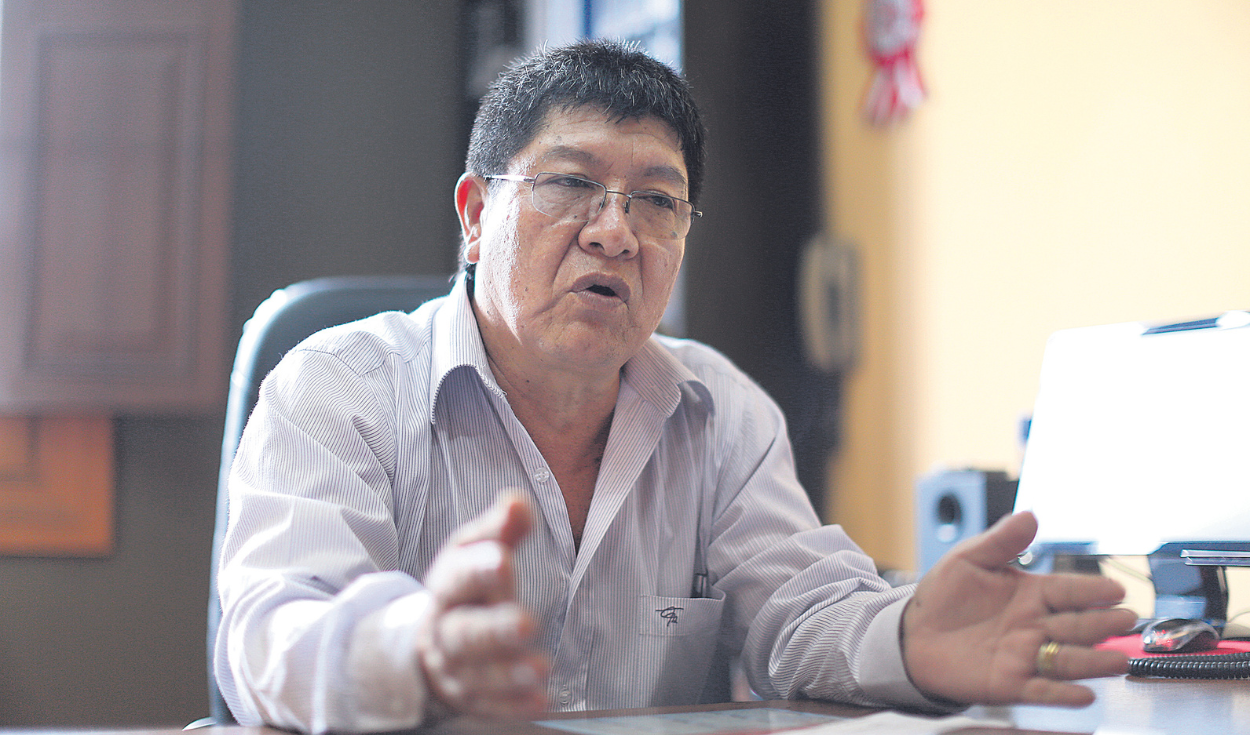
La República, in previous editions, collected the reading of the Executive and the business arm on the future of the economy; Now it’s up to the workers. López does not hold anything back: Dina Boluarte is the one who led us towards productive stagnation and does not lift a finger of business confidence; added to the fact that decisions on labor matters are contrary to the interests of the workers.
-What is your assessment of Dina Boluarte’s first year?
-Mrs. Dina Boluarte maintains the rejection of the people. She’s at 86% (disapproval), and where she goes, to any country she goes to, they also reject her. The crises that are occurring in the country, such as the economy, are being generated precisely by Mrs. Boluarte. We know we are aimless. There is no policy to confront the crisis.
-Have you had the opportunity to talk to her?
-No. As I said a moment ago, it does not have the representation or acceptance of the people.
-And with the Minister of Labor?
-With the (Daniel Maurate), yes, because we have to look at labor rights, but everything is strictly labor. The former minister (Fernando) Varela reinstated the National Labor Council (CNT), but there was a change and now with Maurate there has been nothing about the CNT.
-During Pedro Castillo’s administration, businessmen withdrew from the CNT, rejecting political decisions. Is the panorama so tense?
-Here we want to discuss not only labor rights but also the increase in the minimum wage. It was announced that it would be seen at the CNT, but to date there is no meeting. The same for discussing pensions; although we know that here businessmen They are going to oppose it, but at least we want this space so that they can announce that they do not have the will to increase the minimum wage, but politically the Government would have to increase it.
-How much should the minimum wage be?
-We believe that there should be a gradual rise to the top, which would be S/2,400 and at least now S/1,500.
-Although it was a promise from Boluarte to raise the minimum wage, his ministers have already come out to say that now is not the time…
-The minister Maurate already said that it was not necessary to raise the minimum wage, still; But we believe that in times of crisis they have to increase salaries to promote internal consumption. Workers, when they have money, drive the internal economy.
-The changes in outsourcing broke the CNT, but organizations like Indecopi declared it a bureaucratic barrier and the MTPE, with its silence, granted it. How to explain?
-It is regrettable that Indecopi declares it as a bureaucratic barrier when it is not its responsibility to give an opinion on labor issues. Businessmen have filed more than 300 amparo actions and six popular actions against supreme decree 001 (which eliminates outsourcing of a company’s nuclear activity). We already told Maurate that this is not up for discussion. It is a topic that is in process and will be defined by Power of attorney. The minister is evidently in a position, let’s say, “on the other side” and supports anti-labor policies of Confiep.
-Where should the labor reform go?
-By the Labor Code for the General Labor Law, and thus modify a series of laws that are dispersed. Apart from that, there are important issues, as I mentioned: increase in pensions, minimum wage, working conditions; but there is no call from the CNT even though we have asked Minister Maurate to do so, since he is the one who chairs it. They believe that calling unions or federations and putting them in their magazines is already a meeting. That is deceiving the public and the workers.
-The Executive announced that they will modify the new agrarian law because “it has been disastrous.” Have you talked to the workers?
-They want to make big profits at the expense of the exploitation of workers. Even the law proposed by Congress (in 2020) does not reflect what the workers really aspired to. The agroexporters They do not want to share those profits with the workers. When they ask for increases there are none and now that there is a policy that responds to business interests, they deny the strike.
-Why is the unionization rate stagnant?
-In the country, employers have a concept that, if workers form a union, it is a bogeyman for them. In accordance with the policies of international conventions of the ILO, a union can be formed, but what employers immediately do is fire leaders and workers or coerce them to resign. There is an anti-union policy that violates human rights.
-What do you expect from the pension reform?
-Workers and retirees must be called to listen to our proposals. The aim was to respond to the interests of the AFP. The Constitutional Court said that pensions must be on par with the minimum wage, and to date that is not met. Pensions of S/600 or S/500 are not enough at all.
Source: Larepublica
Alia is a professional author and journalist, working at 247 news agency. She writes on various topics from economy news to general interest pieces, providing readers with relevant and informative content. With years of experience, she brings a unique perspective and in-depth analysis to her work.












